Applebee’s, Chipotle, and Red Lobster Are Under Fire for Doing This to Customers
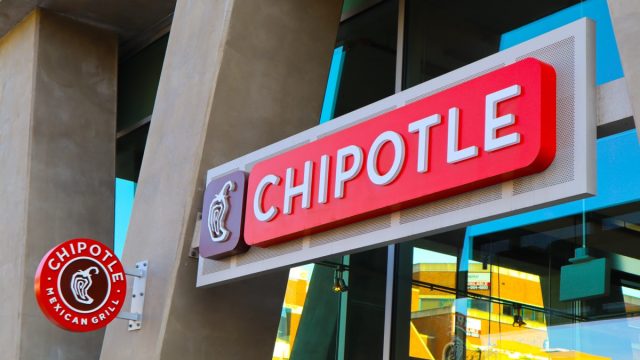
Chain restaurants offer a familiar dining experience no matter which location you go to, from the menu items to the décor. And if you prefer to eat at home, there’s always takeout, with food delivery apps like DoorDash and Uber Eats making it extra simple to place an order from your favorite spot. But now, Applebee’s, Chipotle, Red Lobster, and other popular chains have come under fire for one aspect of their ordering process, which customers allege violates state law. Read on to find out why the companies are now being sued.
READ THIS NEXT: Walmart and Dollar General Are Under Fire for Doing This to Shoppers.
Restaurants have faced backlash for different reasons recently.
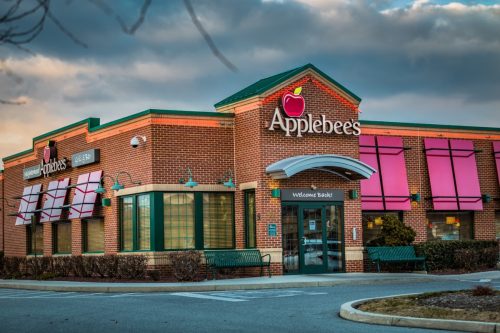
The food service industry receives its fair share of criticism, especially larger, nationwide chains. Cracker Barrel faced threats of a boycott earlier in August after a Facebook post announced that vegan sausage would be added to the breakfast menu. Comments flooded the post, with one customer writing they’d “lost respect for a once great Tennessee company,” and another writing that the addition was “all the more reason to stop eating at Cracker Barrel. This is not what Cracker Barrel was to be all about.”
Applebee’s also dealt with a recent boycott threat, thanks to a controversial email that was leaked on March 9. In the message, Wayne Pankratz, an executive director of operations for American Franchise Capital (a franchisee of Applebee’s restaurants in the Midwest), seemed to be happy about the discontinuation of employment benefits and inflation.
Now, Applebee’s and five other chain restaurants have angered customers to the point where they’ve filed a class action lawsuit.
The restaurants allegedly violated privacy laws.
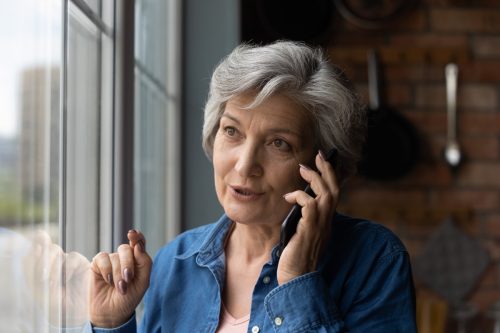
Many of us prefer to order food via an app, where we can link a payment method and track our order while it makes its way to us. But others prefer to order the old-fashioned way—by calling restaurants directly. And that method has landed some of these establishments in hot water.
A new class action lawsuit was filed by a group of customers in Illinois, who allege that Applebee’s, Chipotle, Red Lobster, Blaze Pizza, Noodles & Co., and Portillo’s used automated voice ordering (AVO) systems that “collect, store, and use customers’ voiceprints and biometric information” without their consent. According to the U.S. Department of Homeland Security, biometrics are “unique physical characteristics,” including your voice, which “can be used for automated recognition.” Voiceprints are a biometric modality, providing a digital model of your individual vocal characteristics.
According to the lawsuit, the restaurants violated the Illinois Biometric Information Privacy Act (BIPA), which requires prior informed written consent to collect and store these biometric identifiers.
RELATED: For more up-to-date information, sign up for our daily newsletter.
Customers are worried about their privacy.
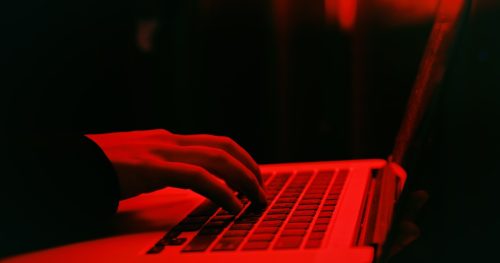
All of the named restaurants rolled out these AI systems between 2017 and 2021, using technology developed by SYNQ3 and Interactions LLC, which are also named in the lawsuit. The AVO systems use an artificial intelligence (AI) voice assistant to collect orders over the phone and respond to other customer needs.
As voiceprints and biometric data are unique to individuals, the lawsuit alleges that it could be concerning if the voiceprints were to “fall into the wrong hands, by data breach or otherwise.”
“Unscrupulous entities could subvert such individuals’ expectations of personal privacy, grossly violate their respective senses of dignity, and otherwise flout notions of common decency,” the lawsuit states, adding that machines can also determine other personal details through a voiceprint.
In a statement to Best Life, SYNQ3 said it “does not and never has created or used a ‘voiceprint’ or other biometric identifier for any of the clients that we serve, including the restaurant brands mentioned in the lawsuit, and we are confident that we have not violated the Illinois Biometric Information Privacy Act.”
AI voice systems were implemented to help streamline the ordering process.
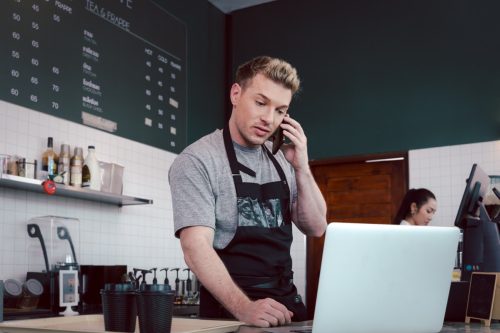
According to The Wall Street Journal, outsourcing to AVO systems helps restaurants improve productivity, as employees are free to perform other tasks rather than take orders over the phone, especially amid the ongoing labor shortage. Multiple customers can order at the same time thanks to AI, and the bots “stick to the upselling script,” the outlet reported. And while they’re implemented for those who prefer ordering on the phone, the automated systems are also intended to push for more customers to order online.
The lawsuit states that by collecting and storing the information, the systems are then able to recognize different forms of speech and help machines learn how individuals order food. The system can then also remember and recognize returning customers, which the defendants allege helps the restaurants make money.
Customers say they were never informed that their information would be collected and stored, and the lawsuit demands a trial by jury, injunctive relief, and “an award of statutory damages for themselves and all Class Members,” per Top Class Actions.
Best Life reached out to all six restaurants named in the lawsuit, as well as Interactions LLC, but has yet to hear back.